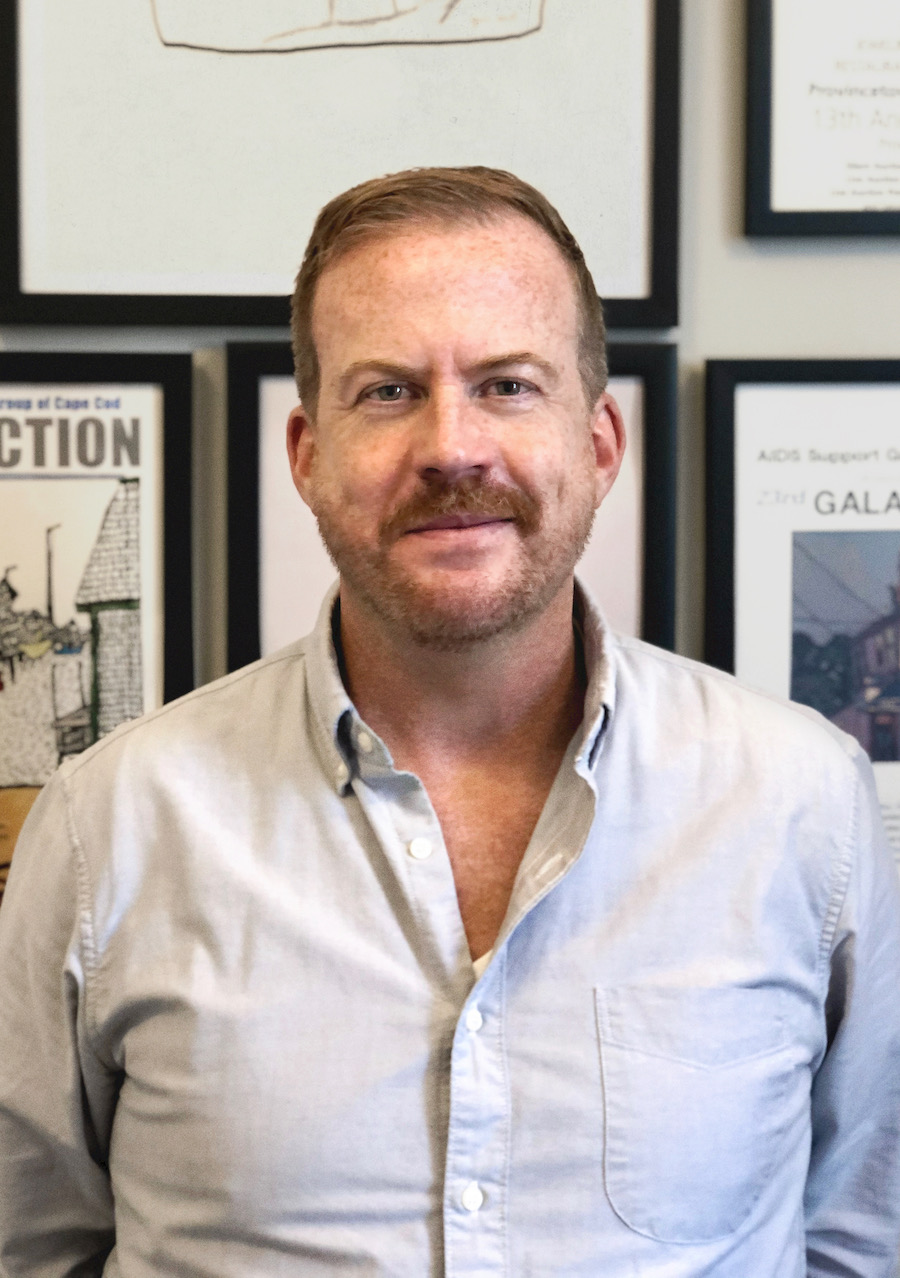PROVINCETOWN — The AIDS Support Group of Cape Cod board has named Dan Gates as president and CEO.
Gates, 47, replaces Joe Carleo, who resigned in late October. Spokeswoman Leslie Sandberg said Carleo’s reasons for leaving had not been discussed with her.

Founded in 1983, early in the AIDS epidemic, with the name “Provincetown AIDS Support Group,” the nonprofit has shifted its focus radically in the last few years. Today, the majority of staff and services target “harm reduction” among heroin and opioid drug users.
Gates told the Independent that the support group has about 350 clients living with HIV and over 1,000 who use its harm reduction services. Those include both needle exchange and overdose reversal medication training.
Of the nonprofit’s 26 staff members, about 30 percent, he said, are tasked with HIV health case management and 70 percent with harm reduction.
Most of the support group’s office space and all the administrative staff are in Provincetown, working mainly with the HIV-positive community. The group’s main office is at 96 Bradford St., the Foley House at 214 Bradford provides affordable housing for the group’s clients, and there is a drop-in center at 148a Commercial St.
But now Hyannis has a small single-family home on South Street focused primarily on stopping the spread of HIV by providing health care, counseling, and clean needles to opioid users. The support group is about to open two spaces in Falmouth, a mobile van and a brick and mortar office, Gates said. ASGCC is also open one day a week on Martha’s Vineyard to provide overdose medication training and syringe exchange.
Gates said the nonprofit won’t leave Provincetown as its base, but he said he does want more administrative staff located in the Mid and Upper Cape.
Although the group’s focus has shifted from one public health crisis to another, the two epidemics have a lot in common. HIV is transferred through sexual contact and used needles. AIDS proliferated in the gay male community and among drug users. These are both “marginalized and stigmatized groups,” Gates said.
In both the AIDS and the opioid epidemics, Gates added, staff see a tremendous amount of death.
“We have policies about self-care for the staff when they experience grief and trauma on the job,” Gates said. “We developed those tools back in the 1980s and 1990s and now we are using them with the harm reduction staff.”
There are weeks when two or three people die of overdoses, he said. That hurts the community and it affects the AIDS Support Group staff who have worked with them.
Gates came to the support group in 2012 as a volunteer with a passion for helping the HIV-positive community, he said. While earning a master’s degree in social work he was working at the support group, gaining a wider perspective. His perspective continued to expand as he interned and worked at Gosnold on Cape Cod, the largest substance abuse and behavioral health organization on the Cape, he said.
Though he was a film producer in London and New York for a decade and had no experience in social work, he made the transition by taking an intensive master’s program for three years on weekends at Boston University. Gates is licensed to practice social work and his primary focus has been issues related to the LGBTQ community, with a focus on the intersection of trauma, addiction, and HIV, according to a news release from the AIDS Support Group.
“I was coming here for weekends and it was a little village by the sea that I fell in love with,” he said. “Here you can throw a stone in the pond and see the ripple. You see how your work is so impactful.”



